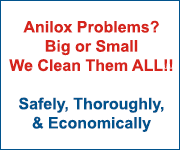Label PRomotion | Questionable Claims Spur Need for Due Diligence
- Published: November 16, 2016, By Mark Lusky
Law firms harvest product manufacturing "low-hanging fruit."
 Recent lawsuits over label claims and disclosures, currently generating negative PR for the targeted companies, make a case for product manufacturers to review their labeling just to make sure they’re on firm ground. From fruit snacks to wine, an increasingly litigious populace (cheered on by opportunistic law firms only too happy to champion their causes) is clamoring for accuracy and authenticity. It’s part of a larger consumer-driven trend demanding telling “the truth, the whole truth, and nothing but the truth” when it comes to health-related and other product claims.
Recent lawsuits over label claims and disclosures, currently generating negative PR for the targeted companies, make a case for product manufacturers to review their labeling just to make sure they’re on firm ground. From fruit snacks to wine, an increasingly litigious populace (cheered on by opportunistic law firms only too happy to champion their causes) is clamoring for accuracy and authenticity. It’s part of a larger consumer-driven trend demanding telling “the truth, the whole truth, and nothing but the truth” when it comes to health-related and other product claims.
Sweet treat winds up in bitter battle
An article in foodnavigator-usa.com notes that, “Parties clash over Welch's 'made with real fruit' fruit snack label claims…Reasonable consumers may well be misled by the packaging of Welch’s fruit snacks, a magistrate judge has concluded, prompting a lengthy rebuttal from the defendants in court documents filed this month.”
Meanwhile, in the world of granola, opportunistic legal beagles have targeted claims about “100% natural” ingredients. Consumerist.com reports, “What exactly constitutes a ‘100% natural’ food is a matter of much debate, but four new lawsuits argue that granola shouldn’t claim to be 100% natural because [it contains] small amounts of a common pesticide…The actions, all filed by attorneys with The Richman Group out of Brooklyn, claim that General Mills is deceiving customers with a label on Nature Valley granola bars that says the snacks are ‘made with 100% natural grain oats,’ because the products contain small amounts of a widely used pesticide called glyphosate.”
Regardless of the merit of these cases, it’s clear that watchful eyes are looking for ways to right perceived wrongs and receive compensation for doing it. Bottom line, cover your butt by doing everything possible to stay off the litigation radar screen. Generally, once a negative claim is made, product reputation is damaged regardless of the outcome. And, with social media standing by to propagate the story, the damage can spread like a wind-blown wildfire.
Lawyers court class-action cases
Then there’s a blogpost on wsj.com addressing a recent lawsuit against General Mills about Honey Nut Cheerios for “deceptive health claims.” The article points out that, “A lawsuit filed in federal court in California against General Mills alleges, however, that consumers have been duped into thinking the company’s best-selling cereal brand is health food…The complaint, which seeks class-action status, alleges that the marketing of Honey Nut Cheerios and other sweeter Cheerios brands such as Apple Cinnamon, camouflages the amount of sucrose, glucose and fructose in the cereals to the point of violating [consumer] laws…. The plaintiffs are asking the court to order General Mills to change its labeling and ‘pay restitution to restore funds that may have been acquired’ by the company’s allegedly deceptive practices…The Cheerios lawsuit is among a flurry of class-action-seeking complaints filling up the dockets in recent years, a litigation trend recently examined by the Chicago Tribune.”
From law firms to lawmakers
When attorneys aren’t champing at the bit to file lawsuits, lawmakers are taking up the slack. An LA Times headline asks, “How can a wine made in Georgia be labeled 'Napa Valley'?” The ensuing article addresses “A California-led proposal to tighten wine-labeling rules…Federal rules require that at least 85% of a wine whose label includes a viticultural area be derived from grapes grown within the designated region. The wine must also be fully produced within the state. A loophole, though, exempts wines that are sold strictly within single states rather than being placed into interstate commerce. A wine made in Georgia with Napa Valley grapes, for instance, has been labeled as ‘Napa Valley,’ according to U.S. Rep. Mike Thompson (D-St. Helena).”
While smaller manufacturers (with less deep pockets) may escape such high-profile targeting, no one can sit on their label laurels in this era of all-seeing social media and litigation-loving lawyers. Closely check your labels for accuracy and defensibility with trusted advisors (including your own legal counsel) to ensure standing on solid ground.
Mark Lusky is president of Lusky Enterprises Inc., a marketing communications and content development company. Since 2008, he has worked with Lightning Labels, a Denver-based all-digital custom label printing company, as a content developer specializing in expert advice articles. Lusky presents common-sense ideas grounded in doing what’s real and right for managing and enhancing public image.










